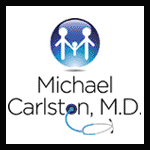If you read about vitamin supplements you must be confused. Actually, it would be hard not to be. Vitamins are, by definition, essential to health. Studies of hundreds of millions of people confirm that truth. However, a rash of recent studies have linked taking vitamin supplements to higher rates of a variety of diseases, especially cancer. What’s up?
The fundamental problem is bad research. This bad research is the consequence of poor understanding, plus the difficulties inherent in designing and conduct nutritional studies that apply to the real world. The best examples of the faults in these nutritional studies are probably those dealing with folic acid and vitamin E.
Many studies show that dietary folic acid reduces the risk of many diseases, particularly cancer. The prevention of congenital spinal malformations is the main reason our food supply has been fortified with folic acid for decades. Surveys of the American population show that this approach works. That is the simple part. The confusing part is that some studies have shown an increased risk of cancer with folic acid supplementation, while others have shown that folic acid lowers the risk of the very same cancers.
As many of you have heard me explain following your own blood testing, nearly 20% of us have a genetic inability to convert folic acid to its metabolically active form. Those individuals among us need to take a special form of folate. If they take the common, most widely available kind of folic acid, not only does it not help, it seems to cause problems consistent with the unhappy research findings. After MERCK, which holds a patent on this form of folic acid, allowed others to use it, I had it added to my multiple vitamin. Very few multiple vitamins contain this form of folic acid, as it is more expensive. Two months ago I read an editorial in a major medical journal wherein a couple of prominent experts pointed out that negative studies on folic acid in diabetics had neglected to address this issue. Their opinion, with which I am in complete agreement, was that these studies were fundamentally flawed and almost certainly drawing incorrect conclusions as a consequence.
Vitamin E has also taken a lot of heat due, to a similar lack of understanding. Most of the vitamin E you can buy in supplements comes as alpha tocopherol. Unless you are a chemist, your brain won’t want to swallow that word or distinguish it from beta, gamma, delta or any other tocopherols. It is not even that simple, because even with all of those tocopherols, an additional class of compounds called tocotrienols are part of the Vitamin E family and seem to be important. Food contains all of these compounds, and it appears that alpha tocopherol might be the least important of all. As one vitamin E researcher wrote, “taking a mixture of vitamin E that resembles what is in our diet would be the most prudent supplement to take”. I would amend that statement to read, “taking a mixture of vitamin E that resembles what would be in an ideal diet and considers your individual needs, would be the most prudent supplement to take”.
A recent survey concluded that very few Americans were low on any vitamins or minerals. While that got significant media attention, the fact that hundreds of studies have shown the opposite, did not. Many of those studies actually measured body levels. That is especially important as estimates from dietary records are woefully misleading. Dietary records are infamously different from the truth of what people really do eat. On top of that, absorption varies tremendously from person to person and even time to time for the same person.
Thankfully, there is evidence that some who write about and study nutrition are thinking more clearly. The “experts” are becoming more expert. Also, those with a better understanding are getting at least some attention for their criticisms.
Positive evidence of the benefits of dietary supplementation continues to accumulate (of course). Recent studies have shown that the brains of people of all ages, from young children to elderly adults, function better beginning just days after starting to take a multiple vitamin. The same holds true of omega-3 supplements. In an example of the complexity of nutrient interaction, vitamin E lowers the rate of prostate cancer but only when taken along with selenium.
Bottom line-
Think critically – If something is vital, many of us need it.
Don’t forget the food – A vitamin pill cannot entirely replace good food.
Don’t go crazy – Take moderate amounts of nutrients as a safety net.
Go crazy if YOU need to – Some people, especially when ill, need much more.
Vitamins vary – Cheap forms of nutrients cost less, but they are usually a waste of money and can be harmful
